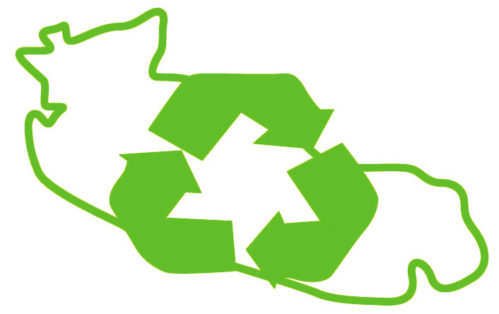Rachelle Stein-Wotten
Local Journalism Initiative Reporter, Gabriola Sounder
GIRO’s textile recovery initiative is receiving more grant funding from the Regional District of Nanaimo as it aims to be fully operational by next month.
The RDN is providing $300,003 in grants to five local organizations through the 2024 iteration of its zero waste recycling funding program aimed at diverting materials from the landfill and stimulating a circular economy. GIRO will receive its full ask of $94,450 for C2C Threads and Relove Local. The other organizations and projects are Habitat for Humanity for a book recycling venture; Light House, to support companies with using construction, renovation and demolition (CRD) materials; Ocean Wise, to measure the effectiveness of options to reduce plastic takeout packaging by food and beverage businesses; and the Synergy Foundation, to deliver sustainability guidance and support through their BC Green Business program.
The 2024 zero waste grant marks the fourth round of funding GIRO has received from the RDN for C2C threads and Relove Local, totalling $350,995. GIRO has also received support from Island Coastal Economic Trust and Pacifican.
GIRO will use the funding in part to address additional building construction costs experienced for completing the Makerspace along with covering a portion of the first year of operational costs. Funds received last year from the RDN will also contribute to covering those first-year costs.
After several construction delays including surprise late-stage changes required by the RDN building department, the Makerspace building passed final inspection and received occupancy in early December.
“We never thought it would take this long,” Michelle Kresnyak, GIRO’s general manager, said. Added construction materials costs as a result of high inflation also came as a surprise. Following framing, the remainder of the build was completed by a team of primarily four Gabriolans, mostly on weekends. Without the volunteers, the building would have never “made it over the finish line,” Kresnyak said. “Because of it being a commercial build on a commercial site, that brought on a lot of red tape challenges” that were new for GIRO.
The new round of funding will also be used to create a textile education program to be available for use in the school district and will include lesson plans, videos and teaching supports. Creating an educational component for schools was a suggestion from the RDN, Kresnyak said. She and filmmaker Janelle Huopalainen will produce materials related to the impacts of the fast fashion industry as well as repair skills that can be presented at professional development days and in classrooms. Gabriola Elementary School students will also have a chance to work in the Makerspace, among other initiatives.
The new year will bring a flurry of activity to the social enterprise, starting with tackling the two-year stockpile of degraded textile donations that need to be shredded. The plan is to sell those shredded materials to businesses for use in their own applications with a focus on the Nanaimo-Ladysmith area to minimize transportation costs and the carbon footprint of the operation, Kresnyak said. Businesses who have items like old uniforms that are no longer useable would also be able to send them to C2C Threads for shredding.
Once the stockpile has been minimized, the operation will begin accepting freshly laundered materials from Gabriolans again.
“The more that starts to move, the more we’re going to be hitting that goal of 52,000 pounds a year” diverted from the landfill, Kresnyak said.
Work will also begin in earnest on developing an acoustic panel prototype in 2024 with designer Maureen Connelly as well as further expansion of the Relove Local side of the operation. Kresnyak said manager Rachel St-Hilaire has been “making great strides in expanding the market for Relove Local,” working with a team of three – Judi Fisher, Sue Artuso, Nelly Madan – to design and sew reusable items from textile donations.
With the opening of the Makerspace, more apprentices will be able to come on board as well as entrepreneurs “who want to explore using the textiles for their own designs,” Kresnyak added. “It’s going to be a big hub of activity by spring 2024 – we’ll really feel like we’re fully operational in the space.”





Recent Comments